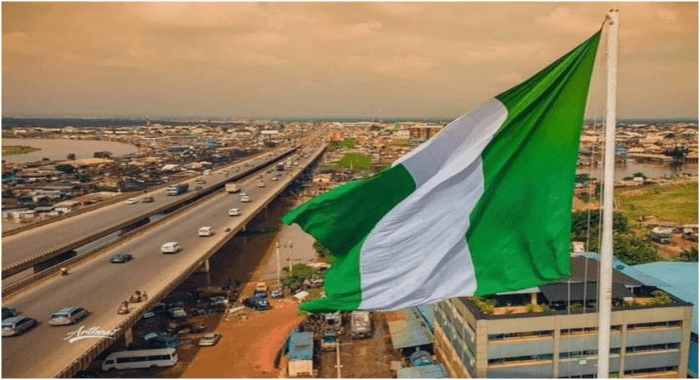Political Issues
Cogency: One Side Of The Coin In Nigerian Political Sphere -By Fiddausi Muhammad Barau
The lack of cogency among Nigerian youths is a symptom of the broader societal issues highlighted above. Nigeria has a hugely youthful demographic, with over 60% of the population under 30 years old. However, many young people struggle to access quality education, find sustainable employment prospects, and participate meaningfully in the country’s political and economic spheres.

Cogency can be considered one side of the coin in the Nigerian political sphere as it refers to the ability of political actors to present strong, rational arguments that are convincing to the public. In this sense, the effectiveness of political communication and messaging can significantly influence public opinion, voter behavior, and policy outcomes.
Political actors in Nigeria may use cogent arguments to frame their policies and positions to appeal to the electorate. Effective messaging and communication can be used to connect with voters, build support, and drive political engagement. This plays an essential role in the political landscape, as there is often fierce competition between political actors, and convincing voters to support a particular candidate or party can make a significant difference in the outcome of an election.
However, it is important to note that cogency is only one aspect of the Nigerian political sphere. There are many other factors that contribute to explaining political behavior in Nigeria, including corruption, ethnicity, regionalism, and identity politics. These factors can often override rational, cogent arguments and create political divisions that are difficult to overcome. Therefore, while cogency is important, it is only one part of the broader picture of politics in Nigeria.
The lack of cogency among Nigerian youths is a symptom of the broader societal issues highlighted above. Nigeria has a hugely youthful demographic, with over 60% of the population under 30 years old. However, many young people struggle to access quality education, find sustainable employment prospects, and participate meaningfully in the country’s political and economic spheres.
As a result, there is typically low engagement among youth in the political process, and many turn to illegal activities and social unrest as a means of expressing their dissatisfaction. The lack of cogency and political participation among Nigerian youth is a problem that must be addressed if Nigeria is to realize its potential and overcome its myriad challenges.
Some of the key steps that can be taken to promote cogency and youth participation in Nigerian politics include:
Policy reforms: There needs to be a fundamental shift in how Nigerian leaders think about and approach governance. A focus on merit-based appointments, transparency, accountability, and inclusivity is needed to attract and retain talent and boost the public’s confidence in the government.
Youth empowerment: Nigerian leaders must implement policies and programs that empower young people to participate meaningfully in the country’s political and economic spheres. This could include initiatives to promote entrepreneurship, vocational training, and civic education.
Accountability: Political leaders must be held accountable for their actions and decisions. The establishment of independent institutions with the power to investigate and prosecute corrupt officials is an essential step in promoting transparency and accountability in Nigerian politics.
Electoral reform: There needs to be a concerted effort to reform Nigeria’s electoral process to promote free, fair, and transparent elections. This includes measures to eliminate electoral malpractices and ensure that every vote counts.
Addressing regionalism and ethnic tensions: Nigerian leaders must take steps to address regionalism and ethnic tensions that have long plagued the country’s political landscape. This could include initiatives to promote inter-ethnic dialogue, inclusivity, and equitable distribution of resources and opportunities.
In Nigeria’s political sphere is facing many complex challenges that will require concerted efforts from all stakeholders to overcome. By implementing reforms that promote transparency, accountability, and inclusivity, Nigeria can attract and retain talent, boost the public’s confidence in its political system, and overcome its numerous challenges.
broadly, the lack of cogency among Nigerian youths raises questions about our national values and priorities. In a society where material wealth and social status are often valued above all else, it is no surprise that young people may feel that investing time and energy into developing their intellectual abilities is not worth the effort.
However, this kind of thinking is short-sighted. Without a strong foundation in cogency, any success that young people achieve is likely to be fleeting and unsustainable. To truly thrive in the complex and rapidly changing world of the 21st century, Nigerian youths need to prioritize cogency alongside other goals.
Fortunately, with the right investments in education, mentoring, and community support, it is possible to cultivate a new generation of young people who are skilled, confident, and capable of tackling Nigeria’s most pressing challenges. By recognizing the importance of cogency and taking steps to develop this critical skill set, Nigerian youths can build a brighter future for themselves and their country.
Fiddausi Muhammad Barau writes from Mass communication department Abubakar Tatari Ali polytechnic Bauchi and can be reached via Gmail: nasfid2020@gmail.com


















